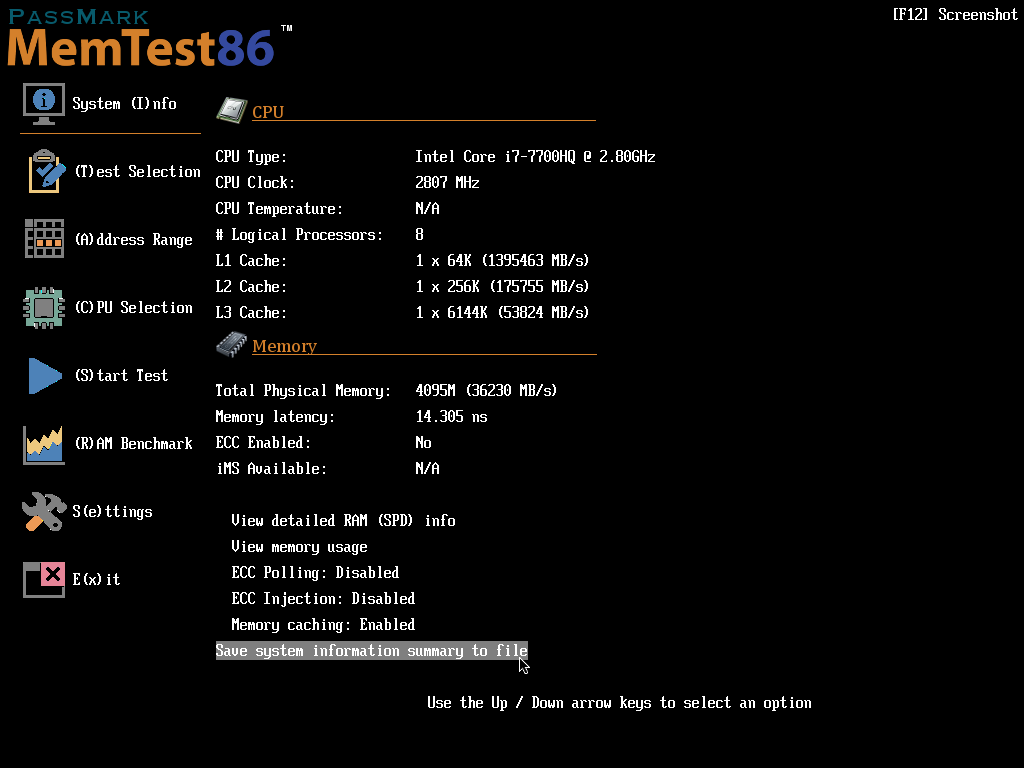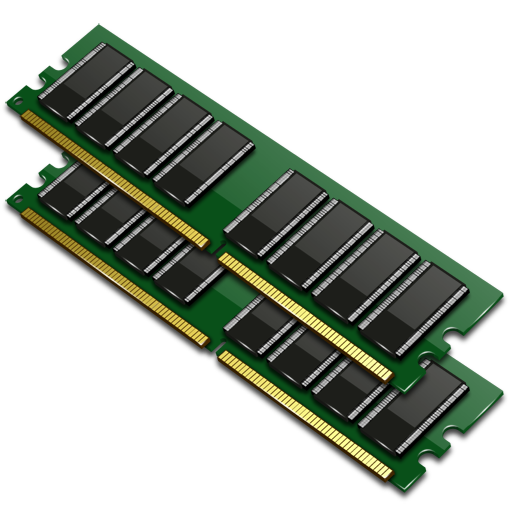Memtest86 is a free, standalone memory testing software for x86 and Arm computers. It boots from USB flash drives to test your computer's RAM for faults, using algorithms that have been in development for over 20 years.
Unreliable RAM can cause a multitude of problems. Corrupted data, crashes and other unexplained behavior. Bad RAM is one of the most frustrating computer problems to have as symptoms are often random and hard to pin down. MemTest86 can help diagnose faulty RAM (or rule it out as a cause of system instability).
Does MemTest86 check RAM and CPU?
No, MemTest86 is a memory-only testing tool for x86 and Arm PCs. MemTest86 boots from a USB flash drive and tests the RAM in your computer for faults using a series of comprehensive algorithms and test patterns.
Does Memtest86 affect RAM?
Memtest86 will load your CPU up to 100% during testing, because data read or written to RAM will pass through the CPU, but it should not harm your processor or RAM.
How many errors in Memtest86 are acceptable?
MemTest86 executes a series of numbered test sections to check for errors and there should be 0 errors. You can read a description of each of the test sections here.
Can MemTest86 fix errors?
Memtest86 only detects physical errors in your system memory, but cannot fix any errors. If your RAM is bad from a memtest, you should first update your motherboard's BIOS or consider buying new RAM.
Is MemTest86 compatible with Linux?
MemTest86 does not require any operating system for execution. The version of Windows, Linux, or Mac used on your machine is irrelevant for execution.

MemTest86 supports all current technologies:
- 13 different RAM testing algorithms - including row hammer fault detection*
- All RAM types supported (DDR2, DDR3, DDR4, DDR5, SODIMM, XMP, ECC)
- Self-booting off USB or Network (PXE)* boot, without needing DOS, Linux nor Windows
- Optimized for UEFI-based x86/ARM systems
- Native 64-bit code (since version 5)
- ECC error detection & injection*
- Secure Boot verified - Code signed by Microsoft
- Graphical interface with mouse input
- Save logs and create customizable HTML reports
- Full test automation via configuration file
- Support for memory blacklisting in Windows (badmemorylist) and Linux (BADRAM)
- Multi-language support (Chinese, German, Russian, Spanish & more)
MemTest86 is relied on for industrial use (PC/CPU/motherboard/RAM manufacturers) and consumer use (system builders, overclockers, computer enthusiasts).
What's New
New Features
- Added new configuration file parameter CHECKMEMSPEED for verifying whether the configured memory speed is consistent with one of the SPD profiles or an arbitrary minimum speed specified by the user. If this check fails, an error message is displayed and the memory test will not start.
- Added new configuration file parameter TCPREQUESTLOCATION for specifying the URL request path (and cloud API key) for PassMark Management Console integration
- Added new configuration file parameter TCPGATEWAYIP for setting the default gateway route IP address to allow for connections outside the local network for PassMark Management Console integration
- Added new configuration file parameter SPDREPORTEXTSN for specifying whether to use the module's extended, 18-digit serial number or standard 8-digit JEDEC serial number in reports. The extended serial number encodes additional manufacture information (including the manufacture ID, date and location).
- Added new configuration file parameter DISABLESPD for disabling SPD collection. This is a workaround to prevent throttling of memory speeds resulting in increased test times. This occurs when reading SPD data interferes with the chipset's Closed-Loop Thermal Throttling (CLTT) mechanism.
- Added new configuration file parameter TSODPOLL to enable/disable polling of DIMM temperature sensors (if available)
- Preliminary address module decoding support for Intel Meteor Lake/Arrow Lake chipsets
- Support for collecting memory timings periodically during the test session. When the test completes, the lowest/highest memory speeds are reported.
- Added support for reporting AMD EXPO profiles in DDR5 SPD
Fixes/Enhancements
- Added TLS support for PassMark Management Console integration
- Added DNS support for PassMark Management Console integration
- Added support for new DDR5 form factors "CDIMM", "CSODIMM" and "CAMM2" for CHIPMAP configuration file parameter. This is to support the new clocked (CUDIMM/CSODIMM) and compact (CAMM2/LPCAMM2) DDR5 form factors supported by newer chipsets (eg. Intel Arrow Lake)
- Increased maximum string length of chip labels to 6 for CHIPMAP configuration file parameter. This is to support longer names used in CUDIMM, CSODIMM and CAMM2 component labels such as "DAR0B0".
- Fixed bug in address module decoding on Intel Comet Lake chipsets
- Fixed incorrect channel mode detection for the following chipsets:
- AMD Ryzen
- Intel Coffee Lake
- Intel Comet Lake
- Intel Ice Lake
- Intel Rocket Lake
- Intel Tiger Lake
- Intel Elkhart Lake
- Fixed incorrect memory timings detection for the following chipsets:
- AMD Ryzen
- Intel Meteor Lake
- Intel Arrow Lake
- Intel Ice Lake-SP
- Intel Emerald Rapids-SP chipsets
- Fixed incorrect clock speed detection for the following chipsets:
- Intel Rocket Lake
- Intel Ice Lake
- Intel Tiger Lake
- Intel Alder Lake
- Intel Meteor Lake
- Intel Arrow Lake
- Intel Elkhart Lake
- Intel Ice Lake-SP
- Intel Emerald Rapids-SP
- Preliminary support for obtaining memory settings for the following AMD chipsets:
- AMD K8
- AMD K10
- AMD Bulldozer
- AMD Piledriver
- AMD Steamroller
- AMD Excavator
- AMD Jaguar
- AMD Puma
- Preliminary support for multithreading on ARM64, which was previously unavailable due to UEFI BIOS limitations
- Fixed issue with reading DDR5 SPD when the SPD page has not been reset to zero
- Fixed ECC injection option not available on AMD Ryzen Zen 3 chipsets. Note that in general ECC injection is not a feature that is normally accessible by end-users and typically requires a custom BIOS.
- Fixed In-band ECC (IBECC) capability detection on the following chipsets:
- Intel Tiger Lake
- Intel Alder Lake
- Intel Meteor Lake
- Intel Arrow Lake
- Intel Elkhart Lake
- Fixed ECC capability detection on Intel Ice Lake-SP and Emerald Rapids-SP chipsets
- Fixed reporting of invalid DIMM temperatures by adding checks for valid Temperature Sensor on DIMM (TSOD) raw data
- Added support for retrieving Intel Meteor Lake and Arrow Lake CPU information
- Updated Chinese and Japanese localization strings (courtesy of Nagisa)
- Updated blacklist to work around specific mainboards/BIOSes with known UEFI multithreading and other issues

